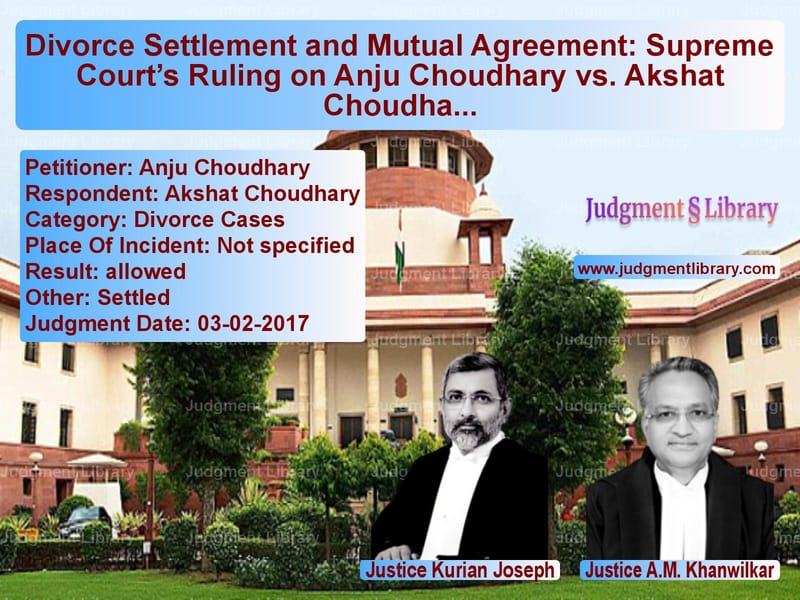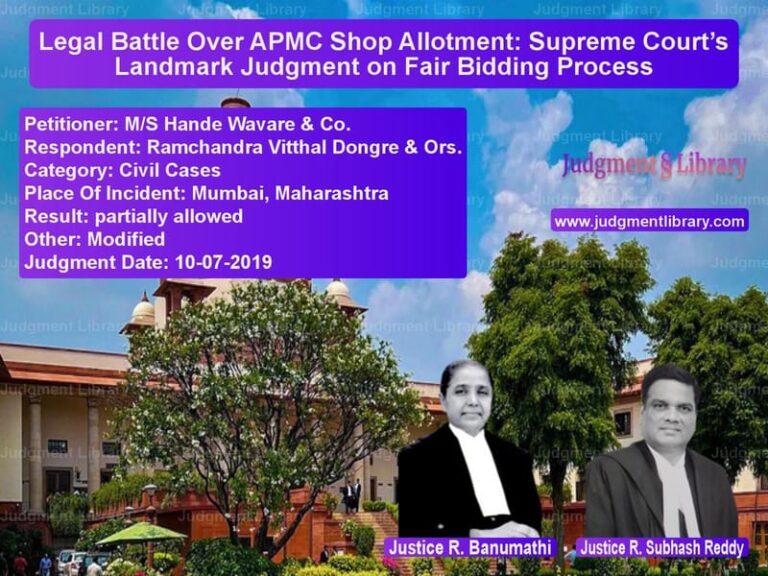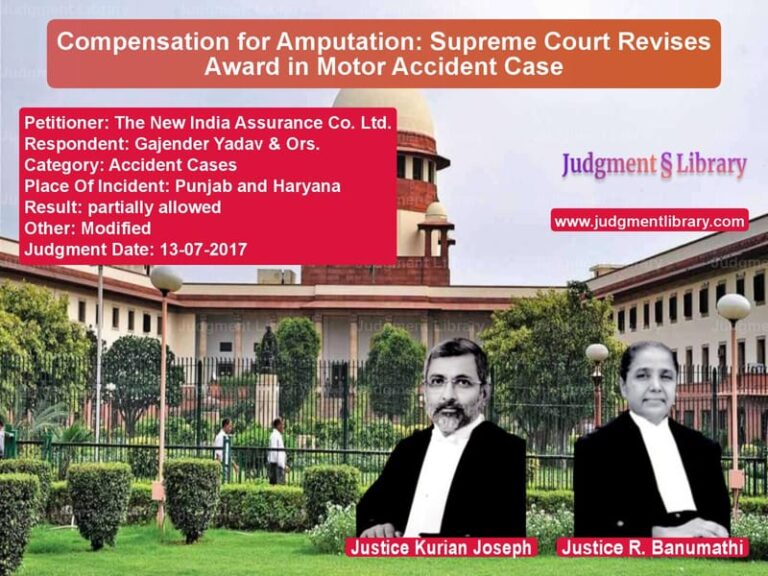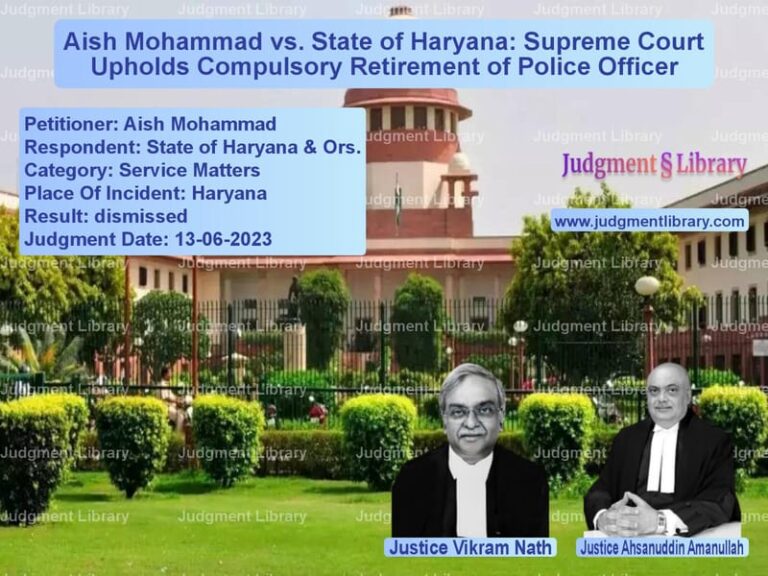Divorce Settlement and Mutual Agreement: Supreme Court’s Ruling on Anju Choudhary vs. Akshat Choudhary
The Supreme Court of India delivered a significant judgment on February 3, 2017, in the case of Anju Choudhary vs. Akshat Choudhary, addressing the finalization of a divorce settlement through mutual agreement. The case revolved around the amicable resolution of matrimonial disputes, highlighting the importance of out-of-court settlements and their recognition by the judiciary.
The Court ruled in favor of disposing of the appeals in terms of a Compromise Deed dated October 5, 2016, which had been executed between the parties. The decision sets a crucial precedent for divorce cases where both parties opt for a peaceful resolution outside the courtroom.
Background of the Case
The dispute arose from matrimonial differences between Anju Choudhary (appellant) and Akshat Choudhary (respondent). The case had initially been contested in lower courts before reaching the Supreme Court through a Special Leave Petition (SLP) Nos. 2895-2896 of 2016.
During the proceedings, both parties reached an amicable settlement, resulting in the signing of a Compromise Deed on October 5, 2016. The agreement addressed all outstanding issues, including financial settlements, child custody (if applicable), and other matrimonial concerns.
Petitioner’s Arguments
The petitioner, Anju Choudhary, had initially contested the divorce proceedings. However, after discussions and negotiations with the respondent, she agreed to resolve all disputes amicably. Her key arguments were:
- The marriage had broken down irretrievably, and an amicable settlement was the best course of action.
- The terms of the Compromise Deed provided a fair and just resolution of all financial and personal matters.
- Continuing with prolonged litigation would only increase emotional and financial distress for both parties.
Respondent’s Arguments
The respondent, Akshat Choudhary, agreed with the petitioner’s stance and argued that:
- Both parties had voluntarily entered into the Compromise Deed without coercion or undue influence.
- The agreement comprehensively addressed all marital disputes, including financial obligations and any potential claims.
- Mutual consent divorce was in the best interest of both parties, and the court should recognize and enforce the settlement.
Supreme Court’s Ruling
The Supreme Court, after reviewing the Compromise Deed and hearing the arguments of both parties, ruled that:
- The settlement was legally valid and had been entered into voluntarily by both parties.
- The court had no reason to interfere in a mutually agreed resolution.
- The appeals should be disposed of in accordance with the terms of the Compromise Deed dated October 5, 2016.
The Court stated:
“It is brought to the notice of this Court that the parties have settled their entire disputes outside the Court, and therefore, it is prayed that in terms of the Compromise Deed dated 05.10.2016, these appeals may be disposed of.”
Conclusion
The Supreme Court’s decision highlights the importance of alternative dispute resolution in matrimonial cases. The ruling reinforces that:
- Courts should encourage out-of-court settlements in matrimonial disputes where both parties agree.
- A valid Compromise Deed can serve as a binding resolution, reducing the burden on the judiciary.
- Mutual consent divorce remains a viable and legally recognized method to end marital disputes amicably.
The case was officially closed, with the Supreme Court directing that the Compromise Deed be part of the final order.
Don’t miss out on the full details! Download the complete judgment in PDF format below and gain valuable insights instantly!
Download Judgment: Anju Choudhary vs Akshat Choudhary Supreme Court of India Judgment Dated 03-02-2017.pdf
Direct Downlaod Judgment: Direct downlaod this Judgment
See all petitions in Mutual Consent Divorce
See all petitions in Alimony and Maintenance
See all petitions in Property Division in Divorce Cases
See all petitions in Judgment by Kurian Joseph
See all petitions in Judgment by A M Khanwilkar
See all petitions in allowed
See all petitions in settled
See all petitions in supreme court of India judgments February 2017
See all petitions in 2017 judgments
See all posts in Divorce Cases Category
See all allowed petitions in Divorce Cases Category
See all Dismissed petitions in Divorce Cases Category
See all partially allowed petitions in Divorce Cases Category







